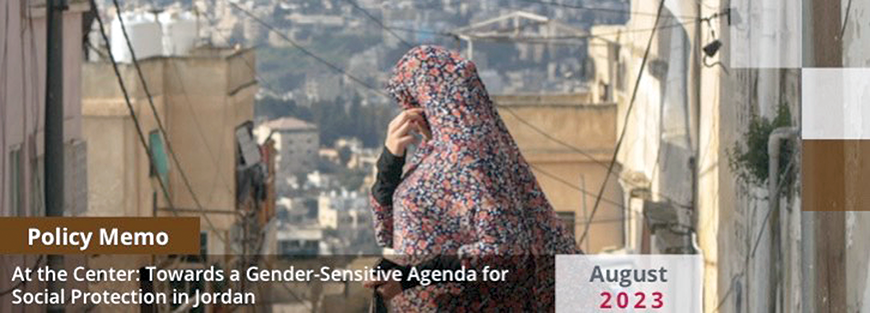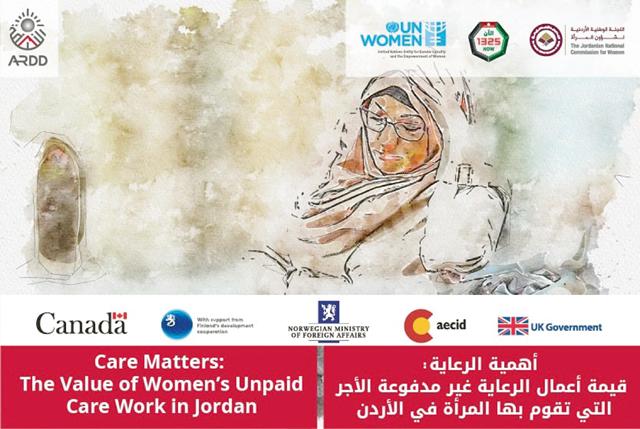You are here
ARDD policy paper calls for adopting gender-sensitive social protection policies in Jordan
By Mays Ibrahim Mustafa - Sep 15,2023 - Last updated at Sep 15,2023

The cover of the ARDD Policy Memo
AMMAN — A policy memo recently issued by the Arab Renaissance for Democracy and Development (ARDD) highlighted the importance of adopting gender-sensitive social protection policies in Jordan.
The paper is titled “At the Centre: Towards a Gender-Sensitive Agenda for Social Protection in Jordan”. It identified challenges impeding women’s access to social protection in Jordan.
These include the fact that “the understanding of social protection in Jordan remains anchored in a charity paradigm, rather than a rights-based approach based on universal minimum guarantees”.
Despite Jordan’s “robust legal framework”, only 27.8 per cent of its population is covered by at least one social protection benefit, according to figures by the International Labour Organisation (ILO) referenced in the paper.
It added that Jordan’s expenditures on social security are the highest in the region, amounting to 12.6 per cent of its GDP. However, there are “large gaps” that affect children and persons with disabilities, and around 40 per cent of older people, primarily women, don’t have access to an old age pension.
Women also face “significant challenges” in accessing contributory schemes, and their access to social insurance through them remains “marginal”, it stated.
According to the paper, this is mainly because women in Jordan have an extremely low participation rate in the labour market. Moreover, a significant number of both national and foreign women working full-time remain unregistered.
According to the Department of Statistics (DoS), the female labour force participation rate totalled 13.7 per cent during the first quarter (Q1) of 2023.
It also pointed out that 2021 data issued by the local NGO Sisterhood is Global (SIGI) shows that by the end of 2017, only 27.9 per cent of working women (313,571 out of 1,122,843) and approximately 16.3 per cent of retired women (33,252 out of 203,289) were registered in social security.
Recommendations for a way forward
The policy memo recommended working towards implementing universal social protection schemes that are more likely to prevent the exclusion of women, especially those from poor and marginalised groups.
It also suggested integrating gender-responsive elements in cash transfers and avoiding tying them to conditionalities that add to women’s “unpaid care burdens”.
Another suggested intervention was the use of “affirmative” action to enhance female labour force participation by “implementing quotas in the public sector and/or fiscal incentives for hiring and retaining women in the private sector”.
‘Why it matters’
Social protection programmes can be “effective” in mitigating and addressing certain risks that are faced by women worldwide, including the limited access to education, the lack of adequate healthcare services, “gender-based discrimination, unpaid care work, high poverty rates, and increased vulnerability in old age”.
Related Articles
AMMAN — The ratio of women to men’s time spent on unpaid care work in Jordan is 19 to 1, the highest within the Arab states, a local study r
AMMAN — In support of the efforts exerted by the Jordanian National NGOs Forum (JONAF) to respond to and recover from the COVID-19 pandemic,
AMMAN — The highlights of a USAID-funded programme that seeks to mainstream gender within society took centre stage at a recent event, revie














